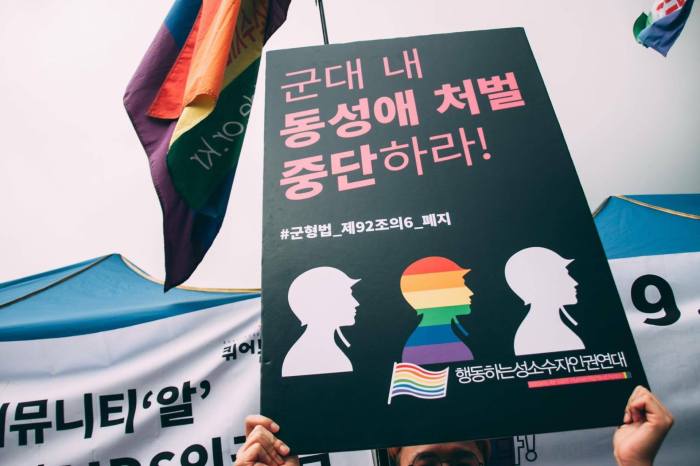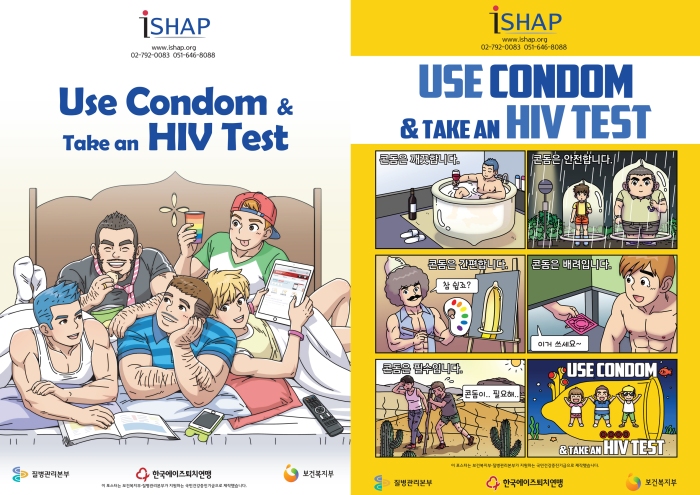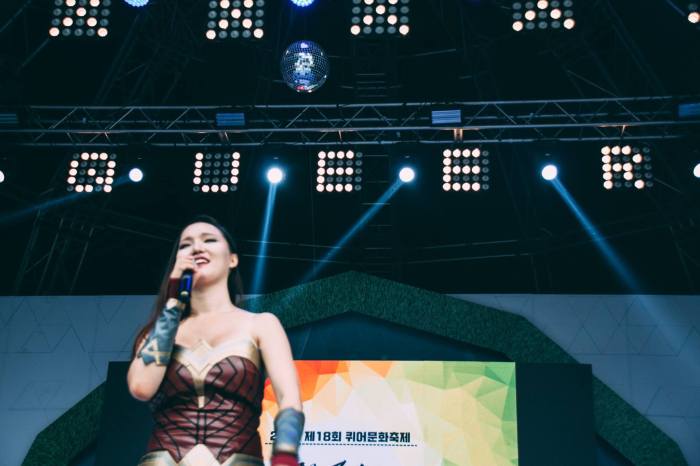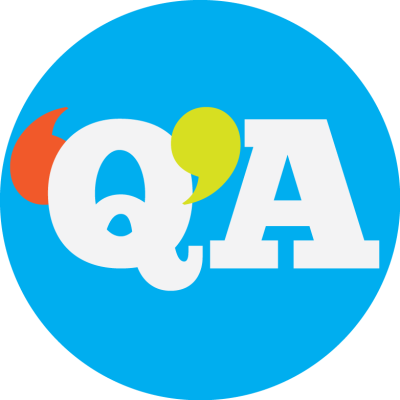
Photo by Kim Min Soo & Korea Queer Culture Festival
Written by Heezy Yang, South Korean LGBTQ artist and activist
Even though South Korea has become a culturally very influential Asian country (in such a short period of time with the rise of K-pop and its entertainment industry in general, as well as its economic growth), non-native South Koreans outside South Korea are often only able to access limited bits of the country’s culture due to the language barrier and South Korea’s unfamiliarity with foreigners. South Korea’s LGBTQ culture is especially something that is hardly exposed to people all around the world. As an English-speaking South Korean who’s been fairly active in South Korea’s LGBTQ scene and movement, I get asked a lot of questions by foreign academics and I receive interview requests from media. Something that I can assure you is that South Korea does have a rapidly-growing and unique LGBTQ culture and that behind it there are many hard-working LGBTQ activists. Through this article, I would like to share my knowledge and experiences regarding LGBTQ activism in South Korea. This article will be presented through specific categories which will aim to deepen the reader’s understanding regarding this topic.

Photo by Heezy Yang
Korea Queer Culture Festival (Seoul Pride)
Korea Queer Culture Festival (also known as Seoul Pride) is the most visible form of South Korea’s LGBTQ activism. The festival started back in 2000, with 50 participants. I attended the festival for the first time in 2011 and I remember seeing a couple of thousand people participating in the parade. This year, at the 18th festival, over 85,000 people gathered for the show and the parade. Because LGBTQ people are socially and politically still not accepted in South Korea, the festival faces many obstacles and interruptions by religious groups and the government (in a subtle but effective way) in the process of organising, every year. There are hundreds of stalls, performances and fun music to dance to at the festival, but according to people who have been to pride parades in western countries, the atmosphere is very different because the Korea Queer Culture Festival is not commercial at all (the festival financially completely depends on donation) and it still feels like a protest and a statement rather than just a festival. Over the last few years, I have seen more and more straight allies attending the event and also families bringing their kids to show them what acceptance and diversity are.
Note: The size is much smaller but Daegu (a city located in the south of South Korea) has been holding a Queer Culture Festival since 1999. Busan (Korea’s second largest city) and Jeju (an island province with a population of 600,000) are planning to have their first Queer Culture Festival later this year as well.
Politics
2017 has been a memorable year for LGBTQ people in South Korean politics. The presidential election was held in May and one of the five major presidential candidates, Sim Sang-jung, supported LGBTQ rights openly during her campaign. Also, for the first time, homosexuality was mentioned during a live television presidential debate. However, LGBTQ people were enraged and frustrated by what was said by then-most-popular candidate and current president Moon Jae-In. When Moon was asked whether he opposed homosexuality by conservative candidate Hong Jun-pyo, he replied “I oppose”. Moon was a liberal candidate and former human rights lawyer. Many see these kinds of anti-LGBTQ speeches of politicians as a result of powerful Christian influence in politics. Christianity is the most popular religion in South Korea and their powerful lobby has been stopping politicians from passing an anti-discrimination law. Sim Sang-jung’s support toward LGBTQ as a major presidential candidate was welcomed by the South Korean LGBTQ community and Moon Jae-In had to face a guerrilla protest by LGBTQ activists during his speech at the National Assembly in Seoul, after the television debate.
Lately, the only openly-gay South Korean celebrity Hong Seok-cheon has revealed his interest in running for head of Yongsan-gu district (which has a famous gay neighbourhood in it). He owns a number of restaurants in Yongsan-gu district. Some LGBTQ people support his ambition in hopes of having the very first openly-queer politician, however, many LGBTQ activists are not so supportive of him and there is a reason for that. Earlier this year Hong met former presidential candidate Ahn Hee-jung who originally supported LGBTQ rights publicly and the meeting was shown to the public on Facebook live. Hong said “It is a disadvantage for a politician (in Korea) to support us (LGBTQ people) openly. You are smart so I wonder why you would openly say that (you support sexual minorities) during an interview?……You can withdraw your statement if you think that’d be better for the election. We (Korea’s LGBTQ community) would understand even if you did” to Ahn and Ahn later really did withdraw his support for sexual minorities.

Photo by Heezy Yang
Protests
Aside from the previously-mentioned protest against Moon Jae-in which took place during his presidential campaign, there have been many more memorable protests led by LGBTQ activists.
In December of 2014, the Seoul Metropolitan Government had scrapped plans to legislate a human rights charter after protests from homophobic groups. I remember hundreds of people gathered up at the lobby of Seoul City Hall and went on stay-in strike for five days, after the disappointing decision was made by the government. The decision was not overturned, however, the protestors have received an apology from the mayor Park Won-soon.
Korea Queer Culture Festival parade was almost cancelled in 2015 because all the places in Seoul that festival organisers were considering booking for the parade were already booked by Christian groups, with the intention of stopping the parade from taking place. So the festival organisers, without choice, decided to move the parade to a later date, and to another place which was Seoul Plaza. According to the city rules, you can book a place for a gathering as early as one month before the gathering. However Namdaemun police station (Namdaemun police station has authority over part of the parade route near Seoul Plaza) changed the rules for booking the specific date the festival organisers were planning on booking. The police station, out of the blue, announced that they will accept the request of the first person or group that starts queuing up and waiting, 7 days before the booking opens, in front of the police station. Festival organisers went to the police station to be the first in the queue, right after the announcement was made but there were members of Christian groups waiting outside the station, being the first people in the queue. The sudden change of the rules of booking and Christian groups informed about it first have led people to think that the police is in favour of Christian groups. Enraged and frustrated after losing the possibility of booking the date, LGBTQ activists decided to still queue up behind the Christians and turn it into a protest and a statement. During the 7 days of queuing, at least hundreds of LGBTQ people and supporters came by to show their support. There were queers, straight allies, LGBTQ-supportive religious people, teenagers, older people, Koreans, and foreigners among the protestors. And they brought lots of food, water, blankets and other supplies for those who stayed in the queue continuously. On the last night of protest, over 300 protestors gathered up and waved rainbow-coloured lanterns. Eventually the Christian groups succeeded in booking the date, however, the festival organisers appealed to the court and the court decided in favour of the organisers and the parade took place successfully.
There are so many other meaningful protests and campaigns I have heard of or participated in. There were relatively small protests such as the protest against an anti-LGBTQ concert inside a Christian university, and there were bigger ones such as a series of protests against former president Park Geun-hye. LGBTQ activists and allies marched, holding rainbow flags in the rally of over a million Seoul citizens demanding then-president Park Geun-hye to resign in 2016 and 2017 to show people that sexual minorities are also an important part of the country that deserve equal rights.

Photo by Kim Min Soo
Organisations
While LGBTQ may not be visible enough nor have political power in South Korea, there are so many LGBTQ-related organisations in the country that it’s impossible to keep track of all of them. It seems, to me, a few new organisations are created every week. The problem is that, as far as I know, all of them completely depend on donation from individuals and fundraiser events because the country does not yet have an environment where corporations and groups that have market power can openly support the LGBTQ community and maintain the power at the same time. Below are brief introductions of some of the LGBTQ organisations I am familiar with.
Dding Dong, Haengsungin (Solidarity for LGBT Human Rights of Korea), Jogakbo, Chingusai are among the bigger and well-known organisations. Dding Dong is the first and only LGBTQ youth support centre in Korea that was established in 2014. It offers LGBTQ minors a safe place where they can be fed, educated, and given consultations they need and its activists and staff also run outreach programs regularly. Haengsungin started as ‘LGBT Association of Korean Universities’ in 1997 and changed its name to Haengsungin, which means solidarity of active sexual minorities, in 1998, and has been hosting and/or participating in numerous events and protests. It is hosting a fundraiser show to celebrate its 20th year on the 16th of September. Jogakbo is an organisation that is run by transgenders and for (mainly) transgenders. Its organisers and members have been raising their voices to make transgender issues visible for many years now and their main focus is on providing transgenders a safe space where they can share their experiences and learn how to build a sustainable lifestyle as a transgender. Chingusai (translated as friendship) is a Korean gay men’s human rights group and is one of the oldest LGBTQ rights organisations that was established in 1994.

There are other organisations that are not the most well-known, biggest mainstream organisations in the scene but are just as important. Open Doors Metropolitan Community Church (formerly Korean Rainbow Christian Fellowship) is an affirming and inclusive church, and the majority of its members are LGBTQ. Its pastors have been foreigners since its foundation, and they offer services in both Korean and English with the help of bilingual church members. LGBTQIA And Allies In Korea is an organisation that started as a Facebook group for English-speaking LGBTQ and allies in Korea and for those who are interested in Korea’s LGBTQ issues. Its main goal is to connect Korea’s LGBTQ community with English-speaking LGBTQ supporters all over the world and bring international support and attention to South Korea.
Media
LGBTQ-related issues are hardly mentioned in mainstream Korean media and if they are, they are usually distorted. For many years, television and online news have been under-reporting the number of participants in the Korea Queer Culture Festival when they have reported news about the festival. Also, when a group of people, who happened to be gay, were arrested for using drugs, the media presented as if they used drugs because they are gay.
Lately, there have been relatively newer, rising, online-based media platforms that have been in favour of the LGBTQ community. Huff Post Korea has ‘Gay Voices’ category and it has been not only translating foreign LGBTQ-related articles to Korean but also writing about the issues specifically that Korea faces. I have been writing about Korea’s LGBTQ issues for Huff Post Korea since I was asked to become their blog writer last year as well. DotFace (also written as .Face) is a liberal, online-based media platform that creates and shares viral videos through social media. Currently, LGBTQ is one of their main focuses along with feminism.

Entertainment & Art
Vita Mikju, Kuciia Diamant, More, Bori, and Anessa – these are names of people who have some fabulous things in common. First, they are South Korean drag queens, and second, they have been in the music videos of K-pop singers or bands. Definitely it is drag queens who are leading Korea’s LGBTQ entertainment scene. Most recently in K-pop, two drag queens and a transgender performer starred in mainstream K-pop legend Girls’ Generation’s music video for a song called All Night. Exposure of LGBTQ culture through mainstream K-pop videos and various (drag and other fun) shows hosted in many different regions in Korea has been cheering up and encouraging countless insecure, unconfident, or closeted queer people.
While there’s no doubt that drag queens are dedicated artists that bring fashion, love, and important messages to the stage and to the screen, of course there are different types of talented artists as well. Byun Chun is a gay comic artist who has been creating comics and art for over 10 years now. He has collaborated with ISHAP (Ivan Stop HIV/AIDS Project – ivan is a Korean slang for homosexual) and made comics and posters for their campaigns. He also publishes a new episode of gay comics, every week, on gay men’s online comic site Kkatoon. Kkatoon has 7 artists at the moment. In such a conservative society as South Korea, existence of a website like Kkatoon is very important. By reaching out to closeted and inexperienced people with easily accessible and fun cartoons, the artists let the readers experience LGBTQ experiences they never had.
I strongly believe that art has an important role to play in activism. As an art creator and performer myself, I have been using art to make rather political statements lately. ‘Unjustifiable’ is a performance art piece I have been performing in streets of Seoul since 2015. When I perform it, I sit in a box that says ‘I am gay’ on it with a bunch of stuffed animals in boxes next to me. This performance draws attention to the fact that there are a lot of homeless youth abandoned by their families because of their sexuality. This year, in South Korea, a South Korean soldier was sent to jail for having a consensual gay relation with another soldier and many other queer soldiers are still under investigation. (Same-sex sexual activity is not illegal in South Korea, with the exception of those serving in the military.) Shortly after I heard about the news, I created a poster with an image of soldiers shooting each other and two Korean soldiers kissing, to criticize the society where it is normal for soldiers to kill each other but it is not even legal to love each other.

Photo by Kim Min Soo & Korea Queer Culture Festival
In this article, I have talked about seven different categories in LGBTQ activism in South Korea based on my own knowledge. Finally, below is a short interview I had with a South Korean LGBTQ activist to also provide you insight from a different perspective.
Interview with Edhi Park
Edhi Park is a transgender, LGBTQ rights activist and entertainer. She previously worked as a member of Korean transgender rights organisation Jogakbo, LGBT youth support centre Dding Dong, and Open Doors Metropolitan Community Church. She participated in every major protest for LGBTQ rights for the last five years and she also hosted various LGBTQ events including Korea Queer Culture Festival.

- Edhi Park hosting 2017 Korea Queer Culture Festival
Photo by Kim Min Soo & Korea Queer Culture Festival
Q.Where do you think South Korea is with LGBTQ activism?
A. We are in a time of transition at the moment. As the LGBTQ community in Korea started to raise its voice strongly and become more and more visible, anti-LGBTQ Christians also started to fight back harder and harder. These Christians have so much power in politics, and politicians – including presidents – are so scared that they tiptoe around them with LGBTQ issues. Besides, so many of the people who have the power (to make laws to protect LGBTQ people) are conservative older people who are not educated about LGBTQ people. Younger generations know how to use the internet and other new technologies to learn about new concepts and they are used to accepting them. The older generations with political power, however, are not like that.
Q. What do LGBTQ people in South Korea have to do to achieve equal rights?
A. What we need to do is not win every fight. What we really need to do is keep on being who we are and staying strong. Change takes time and that’s inevitable. Sometimes we may win and sometimes we may lose. Eventually the change will come and the world will be ready to accept us. We simply need to not give up and get through this tough time.

One thought on “Overview Of LGBTQ Activism In South Korea”